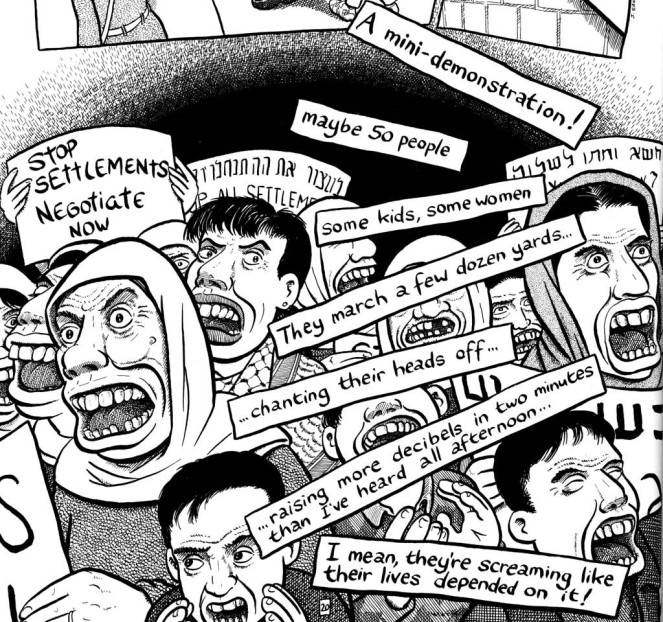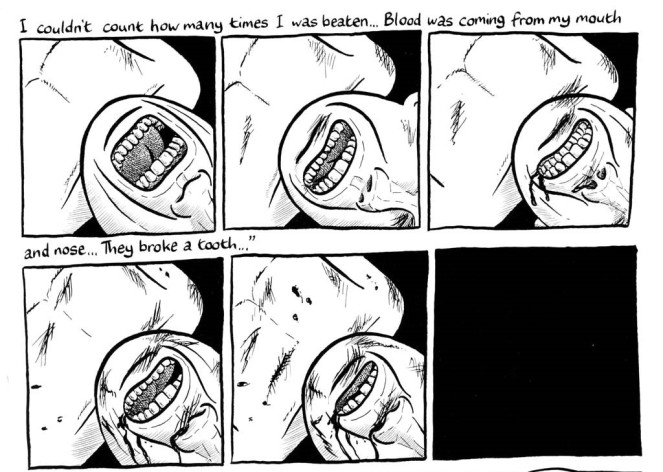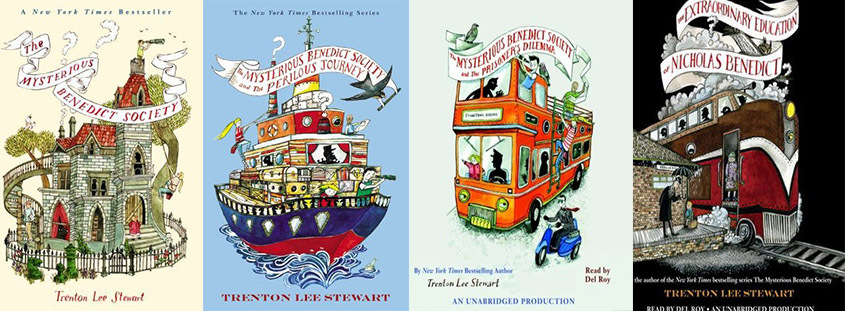There is perhaps no exactitude in suffering. It is something which everyone goes through. Its abstract loneliness is what makes us most human. There is a need, as a mentor once reminded me, to differentiate between suffering that is institutionalised by society (in terms of gender, caste, race, region) and suffering that makes us human.
The suffering we experience as human beings: loneliness, loss, dissatisfaction, sorrow, are perhaps what the Buddha referred to as dukkha. Buddha said that dukkha is the truth of all human existence. We are united in this truth.
There is no unity offered by institutionalised suffering. There is only hierarchy. Institutionalised differences discriminate and stereotype.
We inherit both. The human condition and the human society. But now let us direct our attention to our culture which consumes the violence that is the result of human society.
We live in an age where war is covered on live footage, first in Vietnam and now in Syria. In an age where social media consumes (pardon, shares) violence. How can we talk of suffering humanely today? Humanely in the sense that we do not reduce people to numbers. And their suffering into easy consumption.
Maybe this what Suheir Hammad, a Palestinian poet, means when she writes, ‘language cannot math me, I experience exponentially.’ Maybe this is what she protests against when she writes:
Language can’t math me
I experience exponentially
Everything is everything
One woman looses fifteen
Maybe twenty members of her family
One woman looses six
One woman looses her head
One woman searches rubble
One woman feeds on trash
One woman shoots her face
One woman shoots her husband
One woman traps herself
One woman gives birth to a baby
One woman gives birth to borders
One woman no longer believes love will ever find her
One woman never did
How can the media ever reduce each woman’s suffering to a number of a larger statistic?To be truthful, can we ever reduce suffering to the cold print that we read in the newspaper everyday? Each woman deserves a voice, an equal voice, a voice that cannot be empirically grasped.
I remember waking up one day and reading that 144 children were shot dead in Pakistan by militants. I wondered, is it luck that I am on this side of the news? Is it luck that I wasn’t a number in the statistic? The cold truth is no.
We inherit the way we look at the suffering of others, just as we inherit society’s hierarchies. This is what makes it more likely for me to be sitting and watching the news. The violence of our world is not masked. Its no secret. It is given by the paper, by the channels in volumes everyday. It becomes banal. Banal Banal Banal. It’s easy to skim through pages of obituaries masked as Special Operations or Encounters. It’s easy.
Can you hear them? No? Maybe you turned off the volume.


Can you see him? No? Maybe you turned off your screen.
Credits:
Joe Sacco – Palestine -1994
Suheir Hammad- ‘break (clustered)’- http://www.metrolyrics.com/suheir-hammad-lyrics-break-clustered.html
Featured Image: http://www.editions-rackham.com/joe-sacco/
Something to See:
librarianswithpalestine.org/publications/zines/2013-delegation-zine/
Advertisements Share this:




